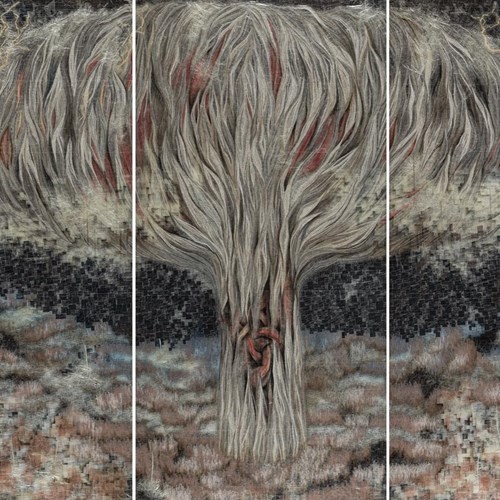Tehran,
No. 5 | Lolagar St. | Neauphle Le Chateau
21 April 2023 - 12 June 2023
Sumerians called it Eridu, to which access was forbidden.
The later interpretation “Garden of Eden” is a reference to its inception and the absence of an end.
Whatever we have and have known and all that we will have and know are in between the two concepts that we have created or remembered; beginning and end, life and death, Eternity without a beginning or an end, and Eden and absence.
All beings are placed on an axis whose beginning is Eden and its end is absence, an axis that can be imagined as a circle where the outset and ending point is the same.
There is no beginning and no end, up or down, inside or outside; a before and after cannot be imagined. It is a beat; it is a decline in one side while it rises from the other side.
Isn’t clinging to symbols in order to understand the essence, the result of failure in expression? In our common speech we always arrive from particles to the whole, and language also always refers us to details.
And in Eden details are important and visible. And in same context the first of Men and the first of Women, next to the the first tree, each with their own characteristics, are signs that consist of many parts, somewhere between Eden and nothingness.
